




 |
   |
 |
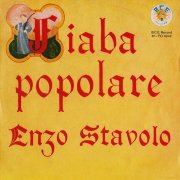 |
7" (1978) **½/TT Fiaba Popolare Mater |
Current availability:
Mellotron used:
Armonium's Vincenzo Stavolo had a brief solo career at the end of the '70s, its first fruit being the Fiaba Popolare/Mater pairing. The 'A' is a mildly overblown ballad, the flip a little folkier, but neither side was ever going to set the world alight, frankly.
Someone (future Stavolo keys man Marcello Faneschi?) plays wobbly Mellotron flutes and background choirs on the 'A', in pleasing enough fashion, although the strings are real. Fiaba Popolare was rerecorded, sans Mellotron, for Stavolo's lone solo LP, 1980's Nel Villaggio di Saint Cloud, also containing a version of Mater, although it's unknown whether that was also rerecorded, so it's possible the original also features the Mellotron. More news when etc. etc.
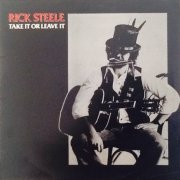 |
 |
Take it or Leave it (1977, 34.34) ***½/T |
|
| Bloody Daggaville I Dig Bob Dylan The Hangover Blues Ready or Not Jenny Lee Education Livin' is So Easy The Numb Bum Blues |
Life Gets Tedious Trains Can Fly Take it or Leave it |
||
Current availability:
Mellotron used:
Rick Steele (1948-2025) was a country/blues musician, born in Auckland, who moved to Perth, WA in 1971. His debut album (Discogs only lists three), 1977's Take it or Leave it, is a witty, blues-with-country-influences record, possibly at its best on world-weary talking blues opener Bloody Daggaville, Jenny Lee's driving blues-rock and the laugh-out-loud Education: "A charge was laid when I was just eighteen, "Did you sleep with this man's wife?"/"Not a wink, your honour, she snored all bloody night"." I'm not sure you'd get away with that now, but this was a) the '70s and b) Australia.
Kiwi legend Steve McDonald plays his own Mellotron on the closing title track, with a lovely, string section-emulating part that almost fools the ear. Steele went on to become something of a legend himself, siring another generation of musicians and playing close on ten thousand gigs before his death, the day after his seventy-seventh birthday. Seems to me he should be better known. RIP, Rick.
See: Steve McDonald
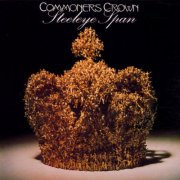 |
Commoners Crown (1975, 38.34) ***½/½Little Sir HughBach Goes to Limerick Long Lankin Dogs and Ferrets Galtee Farmer Demon Lover Elf Call Weary Cutters New York Girls |
Current availability:
Mellotron used:
Steeleye Span (named for a mythical figure from a traditional song lyric) began as a Fairport Convention offshoot, going on to become the Fairports' only serious contender, commercially, in the British folk-rock stakes. 1975's Commoners [sic.] Crown, their seventh album, continued in the vein of its immediate predecessors, accessible folk-rock, reworking traditional songs in a (relatively) contemporary style, highlights including opener Little Sir Hugh, the classic Long Lankin and Maddy Prior's beautiful multi-overdubbed Weary Cutters. Not so sure about closer New York Girls, mind... Peter Sellers on ukulele and Goon voices? Maybe not. I'm not sure whether or not it's a good thing that an extra burst of said voices, originally found at the end of the album, have been excised from some CD versions.
An unknown musician (there's no keyboard credit of any sort) plays Mellotron strings on Long Lankin, drifting in and out of the mix throughout its eight-minute length, quite distinct from Peter Knight's violin. There's a definite 'non-crediting' going on here, as there's no mention of the pianist on Dogs And Ferrets, either. All in all, a fine album, if adhering to my general 'Steeleye album' rule, viz.: 'two classics, several decent, some filler'. Whatever, certainly worth hearing for folk-rock fans.
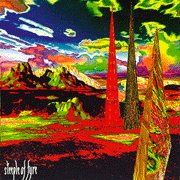 |
Steeple of Fyre (1999?, 40.45) ***/TStiletto Fingernails/Backstreets of PurgatoryHe to Me Procession Journey A Million Years Ago She's Just a Ghost Now |
Current availability:
Mellotron used:
Steeple of Fyre are yet another Ventricle act, along with Angel Provocateur, Mauve Sideshow et al., so you're pretty safe in assuming it's full of what they describe as 'ethereal female vocals'; ladies and gentlemen, welcome to Darkwave. Ventricle's schtick is to have several different projects running concurrently, utilising various members of the same pool of musicians, each subtly (or sometimes not so subtly) different to each other, so Mauve Sideshow's abrasive experimentalism and Angel Provocateur's drifting soundscapes are both very different to Steeple of Fyre's, er, drifting experimentalism, all of which differ from Torn Curtain's take on the style.
Steeple of Fyre isn't the easiest of listens, but is nowhere near the label's further-out acts, avoiding any actual abrasiveness. While Dusty Lee's Mellotron strings can be heard on three of the six tracks, he keeps it sparse this time (sadly), with just the odd chord here and there, leaving the OTT use for Angel Provocateur. If you're into the label's sound, you'll like this, but the casual listener/Mellotron fan would be advised to look elsewhere.
See: Angel Provocateur | Kangaroo Kourt | Mauve Sideshow | Torn Curtain
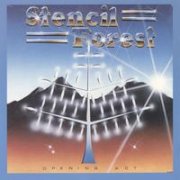 |
Opening Act (1983, 41.32) ***½/T½Opening ActCelestial Voices Just a Fantasy Crossroads Looking Back The Pandemonium Shadow Show Indian Summer Five Studded Poker Player |
Current availability:
Mellotron used:
Stencil Forest (taking their name from a Happy the Man track) were a one-off early '80s pomp outfit, not dissimilar to Styx, Kansas and maybe Saga, amongst others. Doug Andresen has the sort of voice purpose-built for AOR, though he would've made a good prog singer, too, particularly in that 'American style' (think: Kansas, Starcastle) and the rest of the band have the style down pat. So why didn't they make it? Why don't so many decent bands make it? A huge helping hand from Lady Luck tends to be needed (sounds a bit like one of their lyrics, actually) and merely being 'good' clearly isn't enough. Stencil Forest were also unfortunate enough to fall chronologically between the late-'70s pomp boom, such as it was and '80s AOR; the average AOR fan may well have found them too 'clever' for their tastes and they would probably have been considered slightly dated by then.
Opening Act is a decent enough album of its type, although it suffers slightly from an 'indie label' production (listen to the 'harmonies' on bonus track Five By Five, admittedly from a decade later), despite a remix for CD. It also sometimes tips over into Journey-esque AOR territory, a statement likely to trigger one of two reactions in the listener, only one of them good. Album highlights, certainly for the prog fan, are the lengthy Kansas-like The Pandemonium Shadow Show and (relatively) complex closer Five Studded Poker Player, although if you have a low tolerance for the style, you'd be advised to avoid this altogether, to be honest. Frank Cassella owned no fewer than two M400s, although they only turn up on two tracks here (one each?). Celestial Voices combines a string part with synth strings, but the album's chief Mellotron track is Indian Summer, with strings throughout, although it's a pretty minor player overall, falling well behind Cassella's organ, piano, mono- and string synths.
Opening Act would probably have remained a total obscurity, had the band not reformed in the early 2000s and reissued it themselves, before releasing a new album, The Abyss, in 2006. You may have gathered by now that this is an album for pomp fans and anyone seeking harder-edged prog should look elsewhere. Not much Mellotron, but plenty of pomp. Worth the effort.
 |
Sex, Socialism & the Seaside (2004, 27.55) **/T |
|
| England Holocaust One of These Days Afterwards Qu'est-ce Que Tu Fait? Another Time Once I Had a Love I Hope You're Happy |
Where is the Reason? I am Free |
|
Current availability:
Chamberlin used:
Stephanie Says, named for the Velvets song, were Stephanie Winter's seemingly one-off solo project, unbearably twee on Sex, Socialism & the Seaside, sounding more Anglo/French than American in its determinedly pre-psych '60s approach. A particularly awful American take on Saint Etienne, anyone? This is at its least horrible on Afterwards and the French-language (gah!) Where Is The Reason?, which isn't saying much.
Stephan Winter's plays Third Ear Recordings' Chamberlin on Another Time, with a vibes part running through the song, heard in its low-fi glory during the intro. I want to be nice about this record, but I've been comprehensively defeated. Sorry.
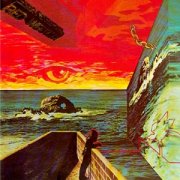 |
Red Weather (1969, 38.17) ***½/TAnother Dose of LifeDrifting Indians I Grow Higher Red Weather If You Choose Too Joannie Mann Chicken Pot Pie |
Current availability:
Mellotron used:
Leigh Stephens, guitarist with the legendary Blue Cheer, was chucked out of the band after their second album, apparently for not doing drugs (!). He briefly moved to the UK, recording Red Weather in London in early '69 with the usual suspects, including keyboardists Ian Stewart and Nicky Hopkins. Does it sound like Blue Cheer? Nope: more like The Dead, to be honest; it's certainly got some of that San Fran psych sound, although it's a bit of a mish-mash stylewise. Then again, since when did any of those bands achieve anything remotely like consistency in any area? The album's stronger material includes opener Another Dose Of Life, with its acid guitar interjections, I Grow Higher and the title track and while there's nothing actually bad here, the aptly-named Drifting goes on a bit, while If You Choose Too is a bit too piano-boogie-by-numbers for its own good.
I thought I was going to get through the whole album without hearing any Mellotron, especially as the last track's called Chicken Pot Pie. Nope: although it's an instrumental acoustic-ish psych-folk number, it's got somebody (Stephens? Hopkins?) playing an interesting MkII strings part that enhances the track nicely. Anyway; while not essential, fans of that late-'60s US psych thing who haven't heard this before will lap it up, although it's not worth it on the Mellotron front.
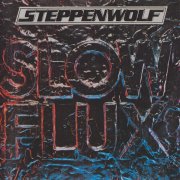 |
Slow Flux (1974, 45.02) ***/T |
|
| Gang War Blues Children of the Night Justice Don't Be Slow Get Into the Wind Jeraboah Straight Shootin' Woman Smokey Factory Blues Morning Blue |
A Fool's Fantasy Fishin' in the Dark |
|
Current availability:
Chamberlin used:
I have some early personal history regarding Steppenwolf's 1974 release, Slow Flux: having discovered second-hand records in 1977, I bought all kinds of things—anything that looked interesting, as long as it was cheap enough. I'd heard of Steppenwolf, so I picked up a copy of this, hoping for something as listenable as the early REO Speedwagon albums I'd inexplicably found for ten pence each (stupidly cheap, even then) not long before. What I didn't know at the time was that it was the first fruit of their recent reformation, the original band having split two years earlier, although, of course, their classic material dates from the late '60s. It bored the crap out of me, so I sold it again soon after. So, the larger part of fifty (!) years later, how does it sound to the considerably older me? It starts well enough, both opener Gang War Blues and Children Of The Night being decent enough, if a little uninspired hard rockers, while that's a nice piece of voicebox work on Jeraboah, but the dullsville likes of Morning Blue and closer Fishin' In The Dark drag the whole thing down.
Three Dog Night's Skip Konte plays Chamberlin, presumably his M4, on Fishin' In The Dark, with a flute line dipping in and out of the track. All in all, this is badly overcooked 'middling rock', the largely redundant brass section doing little to help matters. Not terrible, not really anything, to be honest, with one so-so tape-replay track. Scrapes three stars. So, to answer my earlier question to myself, yes, this is still pretty boring, so my fifteen year-old self was right to sell it on.
See: John Kay
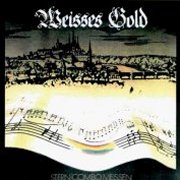 |
Weißes Gold (1978, 37.48) ****/½OuvertüreDer Traum Des Goldes Bann Der Goldmacher Die Flucht Zweifel Die Erkenntnis Weißes Gold |
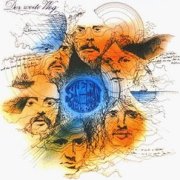 |
Der Weite Weg (1979, 41.29) ***/T½Die SageGib Mir, Was du Geben Kannst Was Bleibt Der Motor Der Frühling Der Weite Weg |
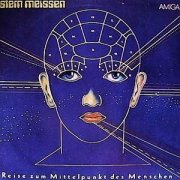 |
Reise Zum Mittelpunkt des Menschen [as Stern Meissen] (1981, 38.54) ****/TTT½AlleinHinwendung Romanze Innenwelt Menschenzeit |
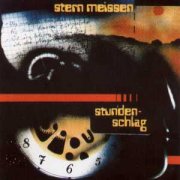 |
Stundenschlag [as Stern Meissen] (1982, 40.03) **½/TTAlso Was Soll aus Mir WerdenDer Eine und der Andere Das Paar Stundenschlag In der Selben Bahn El Salvador Leben Möcht' ich |
Current availability:
Mellotrons used:
Stern-Combo Meissen were, to an extent, a typical East German progressive outfit, veering between prog and more mainstream music, presumably to keep the authorities happy. 1977's Stern-Combo Meissen (***½) is a live recording, free of any Mellotronic involvement, although not a bad album, with a reasonable version of that old classical warhorse, Mussorgsky's Night On Bare/Bald Mountain. Their follow-up, Weißes/Weisses Gold is a bit of a monster, though, being a mature, sophisticated piece of progressive rock, recorded with a choir and an orchestra, which makes Mellotron-spotting (from Lothar Kramer or Thomas Kurzhals) a bit of a nightmare. In fact, the only thing I can hear that even might be is a few seconds of flutes is Ouvertüre and even then, I could be mistaken. Great album, even allowing for the unfortunate ELP-isms on the organ front, but not for the Mellotron.
After the symphonic grandeur of Weißes Gold, Der Weite Weg is irritatingly straightforward, although it starts promisingly enough with the seven-minute Die Sage. The following three tracks are all pretty horrible, the album only being partially redeemed by the twelve-minute Der Frühling, based on some Vivaldi. Mellotron on two tracks only, Der Motor and Der Frühling, both with strings, often doubled on string synth, making it hard to tell in places what's playing what.
Two years on, Reise Zum Mittelpunkt des Menschen is, oddly, a distinct improvement, although it would prove to be the now abbreviated Stern Meissen's last prog gasp. The band utilise quite a 'modern' approach, with sequenced bass figures and polysynths all round, sounding a little like a cross between UK and ELP in places. The material is so much better than on their previous effort that it almost sounds like a different band. Loads of Mellotron, to boot; strings (plus that on/off string synth) all over the place, with only short opener Allein being exempt. Romanze is the classic here, with more Mellotron strings than you can shake a stick at (should you, for some strange reason, wish to do such a thing). More than worth the effort. Unsurprisingly, the following year's Stundenschlag is distressingly mainstream; the jazzy, violin-driven, nine-minute Das Paar harks back to their earlier work, although the title track and El Salvador are particularly bad examples of the band's new-found interest in appalling mainstream pop. There's a surprising amount of Mellotron to be heard, with strings on both Also Was Soll Aus Mir Werden and Der Eine Und Der Andere (though only just on the latter) and brief bursts of choir and strings on closer Leben Möcht' Ich, but not enough of anything to actually make it worth buying.
So; for the Mellotron, Reise Zum Mittelpunkt des Menschen is the only Stern Meissen album actually worth owning, although Weißes Gold is a damn' good record, too. Stern-Combo Meissen isn't bad and Der Weite Weg and even Stundenschlag have their moments, too, but don't go too far out of your way for any of them. Incidentally, a 1996 release, Live, recorded two decades earlier, has Mellotron credited, but actually features string synth.
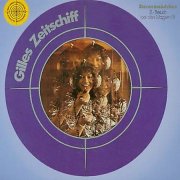 |
Gilles Zeitschiff (1974, 47.14) ***/T |
|
| Tim Bleibt Bei Uns Downtown Lord Krishna Power Drive Bei Tim Right Hand Lover Cosmic Courier Bon Chance Swiss High-Lands |
Der Magier The Electronic Scene Electronic Rock Zeitalter (suite) So Beautiful The Queen of Sunshine Meine Kosmische Musik |
|
Current availability:
Mellotron used:
Sternenmädchen (Star Maiden) was the nom-de-plume of Gille Lettmann, half of Cosmic Jokers with Rolf-Ulrich Kaiser. I've had this listed under that outfit for years, but it seems it should probably file here. You thought their Galactic Supermarket was a difficult listen? You ain't heard nuthin' yet, baby... Gilles Zeitschiff (Gille's Timeship) is completely bonkers; proper krautrock, trippy as you like, with practically nothing on which to get a handle. This is real psychedelia.
Not all that much Mellotron, sadly, probably played by Wallenstein's Jürgen Dollase, with distant choirs on Lord Krishna and what sound like wildly pitchbent strings in the background on Der Magier. Several other tracks feature some sort of background voices, but they're as likely to be real as tape-generated; they don't actually sound particularly Mellotronic.
See: Cosmic Jokers
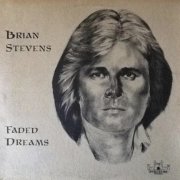 |
Faded Dreams (1979, 38.35) **/TTurquoise LadyGeorgia Sunday Morning Pearls The Jester's Friend Rainbow Suite: Rainbow Song/Over the Rainbow Back to Normal The Music Never Lies So Long Old Man Time |
Current availability:
Mellotron used:
Brian Stevens is a long- (who said 'deservedly'?) forgotten American singer-songwriter with a terrible haircut and a rather overblown vocal style. I have no idea whether he recorded again (or, indeed, before), but 1979's Faded Dreams is a pretty typical document of its era; in fact, probably a more honest one than its better-known contemporaries, as it was produced without major-label interference. Saying that, cheesy disco opener Turquoise Lady was clearly intended as single material, while the bluesy Georgia Sunday Morning and the jazzy Back To Normal were presumably considered 'sophisticated', although the record's default setting is the rather dull, mainstream balladic pop/rock to be heard on every other track, to one degree or another. If there's a 'best track', it's Pearls, opening with two minutes of ambient sound before the song itself kicks in, building up to a rocky conclusion and the album's only decent guitar solo.
J.R. Dennis plays credited Mellotron on The Jester's Friend, with interweaving flutes in the intro and choirs backing real voices later on (listen for the key-click). Are you going to track a copy of this down, all assuming you might wish to? Almost certainly not, but I wouldn't worry too much, even for one reasonable Mellotron track. Thanks, as so often, to Mark Medley for unearthing this late '70s time capsule.
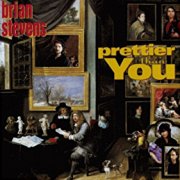 |
Prettier Than You (1996, 47.46) ***/TT |
|
| Zasu Pitts Disillusioned Days Mixed-Up Every Night She Glows The Piper Comets Far From Happy Fall Together |
In the Pink The Real Thing All They Do |
|
Current availability:
Chamberlin used:
Ex-Cavedogs bassist Brian Stevens had a stab at solo fame after their dissolution, 1996's Prettier Than You, also playing in Aimee Mann's band for a while. The album isn't dissimilar to The Cavedogs' Soul Martini in many ways, an indie-end-of-powerpop release, possibly at its best on opening trio Zasu Pitts, Disillusioned Days and Mixed-Up, front-loading the record in true powerpop style.
XTC's Dave Gregory plays keys, most likely Q Division Studio's Chamberlin MusicMaster 600 and possibly his own M400, with a Chamby woodwind sound on Zasu Pitts, background chordal strings on In The Pink, a string line on closer All They Do and what I'd swear are Mellotron tubular bells on Every Night She Glows. Not a classic, but possibly a grower.
See: Cavedogs
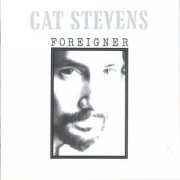 |
Foreigner (1973, 36.08) ***/½"Foreigner Suite"The Hurt How Many Times Later 100 I Dream |
Current availability:
Mellotron used:
I've heard rumours for a while that Cat Stevens used Mellotron, but having finally been pointed in the right direction, it's hardly the most prominent use ever... His 1973 concept effort, Foreigner, features his only side-long piece in the "Foreigner Suite" and while it's more palatable than his usual bedsitter/wetter singer-songwriter stuff, don't expect some sort of prog epic. Don't expect much Mellotron, either; a few string chords here and there, presumably played by Cat himself, noticeably different from the real strings used on the piece, although I've no idea why he bothered.
Anyway, Cat, these days known as Yusuf Islam, appears to be in the process of emerging from his extremely lengthy, religion-induced retirement, which has to be good news for his long-suffering fans. Don't go expecting a repeat of his lavish '70s tours, though... Don't bother with this album for the Mellotron, either.
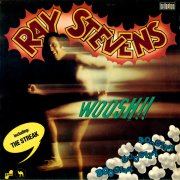 |
Boogity Boogity (1974, recorded 1969-74, 33.10) **/T½The StreakSmith and Jones Freddie Feelgood (and His Funky Little Five Piece Band) Bagpipes That's My Bag Don't Boogie Woogie The Moonlight Special Bridget the Midget (The Queen of the Blues) Heart Transplant Just So Proud to Be Here |
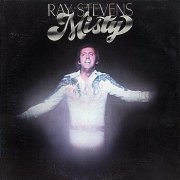 |
Misty (1975, 34.47) **½/T |
|
| Misty Indian Love Call Over the Rainbow Oh, Lonesome Me Sunshine Cow-Cow Boogie Young Love Deep Purple |
Mockingbird Hill Take Care of Business Lady of Spain |
|
Current availability:
Mellotrons used:
Harold Ray "Ray Stevens" Ragsdale occupies an unusual position as a comedy country composer and singer, his biggest hits including Everything Is Beautiful, Indian Love Call and novelty effort The Streak, the lead-off track on 1974's Boogity Boogity, named for a line from that deathless classic. It has a somewhat confused tracklisting, the US original being a nine-track release, two of which (Freddie Feelgood and Bagpipes) were ported across from 1969's Gitarzan and one (the appalling Bridget The Midget) being a 1971 single, making this a semi-compilation, I suppose. More confusion? The twelve-track UK issue removes Bridget and adds no fewer than another four tracks from Gitarzan, so half of the end result is made up of over half of a five-year-old album. This is, frankly, pretty dreadful, its 'humour' being of the most stunted variety, guaranteed to appeal to Stevens' redneck audience, either tiresome (The Streak, Bagpipes That's My Bag), or just plain painful (Bridget The Midget), not helped by the overdubbed 'supper club' laughter on several tracks. Stevens plays Mellotron, with a brief string part in The Moonlight Special, an unusual flute arrangement on Heart Transplant and background strings on Just So Proud To Be Here, although they do little to improve matters. May I also point out the essentially cheap'n'nasty nature of the package, the sleeve 'design' looking like it was knocked off by a total amateur with a tragic lack of any vestige of good taste. Stevens, perhaps?
The following year's Misty consists largely of countryfied covers of popular songs from the pre-rock'n'roll era, more notable versions including the semi-yodelled Indian Love Call and a jazz/funk/country (!) take on Over The Rainbow. Stevens on Mellotron again, with a lush string part on Oh, Lonesome Me and less of the same on Young Love; hardly essential, but always nice to hear. Sadly, although still very much active, Stevens has seriously blotted his copy-book in recent years by involving himself with wingnut far-right Tea Party-style politics. Misty harks back to a more innocent time, when health reforms that might stop people dying because they can't afford treatment weren't seen as 'socialist'. No-one's laughing now, Ray...
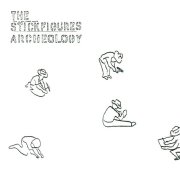 |
Archeology (2021, recorded 1980-2021, 39.08) ***/T |
|
| N-Light Crayola Bowling September Green Everplayed Mr. Simon Yesterday Energy |
Language (live) Screaming (live) Make a Fire Ellis Otivator Dub Ellis Otivator Dub 2021 |
|
Current availability:
Mellotron used:
The Stick Figures were a Tampa, FL-based female-fronted new wave outfit, who only released a four-track EP during their lifetime, titled, with startling originality, The Stick Figures EP. Fast-forward several decades and a full album's-worth of recordings appeared, 2021's Archeology, including the EP tracks and a couple of live recordings, amongst others. I'm not sufficiently au fait with the post-punk genre to tell you who the band were channelling as influences, although I'd be surprised to hear that they'd never heard XTC. Suffice to say, their music was pretty angular, occasionally dropping into surprising little bursts of melody, while Make A Fire, if released by a better-known band, could even have been an indie hit.
Oddly, the studio the band used in the backwaters of Florida sported a functioning M400, rumoured to belong to 'a fairly well-known band', possibly the supposedly non-Mellotron-using Dixie Dregs. Anyway, David Bowman persuaded studio owner, local legend Ken Veenstra, to switch it on during a session in '81/'82, adding a nice, upfront polyphonic flute solo to the end of Everplayed, complete with tape wobblies. Thanks to David for this, as his brief Mellotron use is otherwise uncredited. Incidentally, he also used one, again briefly, with the NYC-based Crash a few years later.
 |
Just an Old Man Hiding Under an Autumn Leaf (199?, 36.02) ***/TTTUntitledUntitled Untitled Untitled Untitled Untitled Untitled Untitled Untitled |
Current availability:
Mellotron used:
Stick in the Mud were a Houston-based experimental outfit, comprising one or both of Jesus Penis (members, er, so to speak: Jim Leggett and John Kennedy) and Ustad Oni, all of whom released albums on Bureaucracy of Hope/J.S. Laboratories in the '90s. The undated Just an Old Man Hiding Under an Autumn Leaf consists of nine untitled tracks of radical analogue synth-wrangling, aided and abetted by a ring modulator and a frequency analyser, amongst other devices. A difficult listen? To an extent, but I've heard far more atonal stuff; takes more than this to put the wind up me, I can tell you...
Mellotron is credited to 'J. Penis', so it could be either (or both) of the duo, with mad, stabbing strings on track two (for want of anything better to call it), slightly less abrasive ones on track five, flutes towards the end of track eight and volume-pedalled choirs and more of those strings (and flutes?) on track nine, all quite clearly played on a real machine. Sourced from...? Buying a physical copy of this probably isn't an option, but if you feel the need, it turns up on blogs.
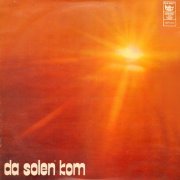 |
Da Solen Kom (1972, 40.11) ***/TTLegetøjstulipanbakkenSommer Et Mønster Endnu Engang Uafbrudt Illusioner Da Solen Kom Elfenbenstårnet Nede Ved Floden Tanker på Vej |
 |
Forchromede Dage (1973, 37.33) ***/TNedenomsvejForårsvise Mælkebøtterne Bag et Ukendt Landskab Forchromede Dage Natten Over Stranden Tabte Slag Bring Høsten Ind |
Current availability:
Mellotrons used:
Stig Kreutzfeldt and Steen Toft Andersen made two albums together, 1972's Da Solen Kom being the first. To my surprise, rather than the expected Danish-language soft rock/pop, it's, well, Danish-language song-based psych/prog, possibly at its best on the breezy Sommer, the proggy title track and closer Tanker På Vej. Excellent guitar work from Kreutzfeldt throughout, often through a Leslie for extra added psychness. Mellotron from Andersen, with an upfront, string section-emulation on opener Legetøjstulipanbakken, more of the same on the fade on Uafbrudt Illusioner and properly upfront strings on the title track.
1973's Forchromede Dage is, effectively, more of the same, highlights including the crazed fuzz guitar solo on Mælkebøtterne, the folky Bag Et Ukendt Landskab and amusingly overblown closer Bring Høsten Ind. Andersen and Nis P. Jørgensen on Mellotron this time, with strings on the title track and Natten Over Stranden, although the strings on Forårsvise, Mælkebøtterne and elsewhere are clearly real.
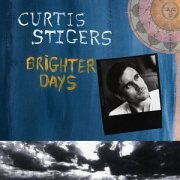 |
Brighter Days (1999, 49.30) **½/T |
|
| She's Fading Away To Be Loved End of the Afternoon Well Worn Love Then I Had This Dream Brighter Days Van Said (Sha La La) The Last Embrace |
Undertow Don't Go Far Deep Dark Night |
|
Current availability:
Mellotron used:
'Adult alternative': that's how I've seen Curtis Stigers described. 'Jazz', too. Jazz? Not going by his third effort, Brighter Days, he isn't. Is this what passed for music in the '90s? And there we were thinking it was better than the '80s. 'Adult contemporary pop', maybe. 'Dull-as-ditchwater adult slop', more like. Actually, it's a lot less offensive than many similar I've forced myself to sit through recently, just completely dullsville, which is better than total shitsville, I suppose. Standout tracks? None. Don't be silly.
Credited Mellotron on one track, from (John) Phil(ip) Shenale, who keeps changing his name, which doesn't help anyone. Anyway, a background string part followed by some reasonably nice flutes, although they don't really add anything much to the song. So; more tedious 'adult' pap. Buy something else.
 |
Lything (2009, 37.45) ***½/T½Through the GrainA Remedy Footprints in the Garden August Hour of the Wolf Tenebre |
Current availability:
Mellotron used:
Still Light are the British/American trio of Kirill Nikolai, Lucy Hague and, er, Sand Snowman, whose debut, 2009's Lything, is a beautiful, ghostly album of haunted folk tunes and the spectre of drone-rock. Highlights include opener Through The Grain, Footprints In The Garden, an ambient piece underpinning a recording of the reminiscences of an elderly British lady who'd grown up in colonial India and the lengthy, harmonium-driven August, but, essentially, it's all good.
Nikolai plays (real?) Mellotron, with distant strings on Through The Grain and A Remedy, sounding just about good enough to be genuine. Or not? Anyway, a lovely album, recommended to folkies and lo-fi fans, although probably not worth it for its Mellotron use.
 |
100 Year Thing (1998, 49.23) **½/T |
|
| 100 Year Thing Lucifer & Jane Voyeur Last Stop Razorblades If I Were a Mountain Rattlesnakes Desert Sands |
God Won't Make You a Man Trouble Countryside Tears of Envy Doors to the World |
|
Current availability:
Chamberlin used:
Like many others, Stephen Stills' son Chris suffers from 'famous parent syndrome': Jakob Dylan, Baxter Dury, Adam Cohen, Anna Waronker... The list goes on and on. Unlike many, however, he seems to have some genuine talent, although whether he'd have got a contract with Atlantic under his own steam is a moot point... Did I hear someone squeak, "Nepotism"? That's not Chris' fault, though and who's going to turn down the chance to get their music out into the world on a major-label budget? Almost no-one, which is why so many people get fucked over by the majors, but that's another story.
Still's debut, 1998's 100 Year Thing, sounds in places like it could've been made by someone of his dad's generation, although it has an overall late '90s feel, more due to the production than any quirk of his songwriting, I suspect. Said songwriting, sadly, is as cliché-ridden as his dad's least impressive work, full of entreaties to 'keep on singing the blues' and the like, all of which sounded dated by, ooh, 1974. This isn't actually bad, but nor is it that good and Still's voice is rather too ordinary to tackle this kind of stuff; the reason many of his dad's generation succeeded was a combination of great voices and immense joie de vivre, neither of which Stills minor seems to possess. Ethan Johns acts as Stills' jack-of-all-trades here, playing various keyed and stringed instruments across the album, including a Chamberlin, with strings on Last Stop and Desert Sands, although the strings on closer Doors To The World are real.
Overall, then, not that exciting, with little tape-replay, although anyone looking for a lost early '70s singer-songwriter effort could do worse than to purchase this, roll up a fat one and pretend they're twenty-one again; the rest of you should probably go elsewhere.